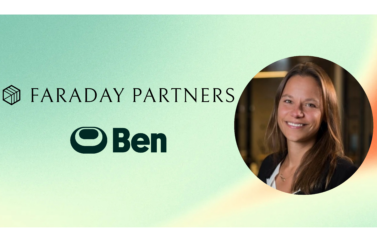Globally-acclaimed tech companies tend to share certain traits. One of them is their ability to bring together a group of highly-talented and versatile founders from the outset. On top of that, these companies almost always manage to hire exceptional early and long-lasting team members – each bringing a valuable and varied set of human qualities, technical skills, experiences. Once properly assembled, these businesses tend to successfully realise their vision, faster than competitors.
Applying a rigorous framework to designing your founding team can be a crucial step to ensure greater outcomes for your business. That being said, few founding teams take a systematic approach before deciding to launch a business together. The reality is that many founding teams tend to come together by “chance” (timing was right to launch a project, a friend/acquaintance makes the connection, the project launches…), and the chances of these being successful is lower.
Taking the time to properly search for co-founders matters
A collaborative, complementary and aligned founding team has the potential to deliver fast and sustainable growth. This sounds like it should be the norm but it is not easily achieved. There are often big imbalances in founding teams. Identifying and appointing the “right” co-leaders around a business’s organisational needs, cultural requirements and market opportunity is essential to scaling effectively over long periods – not just during the honeymoon period. The right co-founders are not necessarily the ones who think or act alike, went to the same school or worked at the same companies, but are those who are able to supplement each other, leverage varied expertise and share more or less equally the various challenges ahead of them in a proactive manner. We believe this structure is at the core of creating value from the earliest stages.
- Leadership Bandwidth & Accelerated Growth
Each co-founder brings a wealth of valuable experience, specialisms and a personal approach to problem-solving. The credentials and capabilities of the leadership team will influence the market’s perception of the company, its ability to achieve great things and its core value. Assembling a team of co-founders/leaders who share a cohesive vision enables the business to distribute work and scale consistently through the first phases of growth.
- Risk Reduction
When evaluating early-stage businesses, venture funds largely rely on the quality and capability of the leadership team as the basis for assessing risk and making funding decisions. In Stanford’s finance professor Iya A. Strebulaev’s survey of 681 venture capital firms, a ‘strong team’ was consistently listed as one of the top three deciding factors when evaluating companies, while JustEntrepreneurs’ study found that businesses with several founders are more likely to hit their funding target and are more successful in closing funding rounds fast. With deeper compatibility and broader skills/experiences, a well-designed founding team reduces both its “real risk” – borne out of a lack of experience, knowledge or complementarity – and its “perceived risk”, which will impact future valuation and ability to raise when needed.
Where it Goes Wrong
Although startups are always launched with the best of intentions, it is striking to us how often we hear or see co-founder relationships failing. This is illustrated in Harvard Business School Professor Noam Wasserman’s study which found that 65% of startups fail because of conflicts among co-founders – 10% of co-founders end their relationship within a year of starting a business, and an additional 45% break up within four years. Why is it that so many co-founding relationships unravel? 71% say the split was due to ‘differences of opinion on the company’s direction’, while 18% feel it was because the other co-founder ‘didn’t share the venture’s values’ (Fuel Ventures). While this often comes as a shock to founders, it is in many ways an inevitability when the approach to forming founding teams has so much variation.
To date, a thorough and independent process for co-founder hiring hasn’t existed in practice. Executive search firms cannot really help – their model isn’t tailored to early stage risk and they lack the perspective. Most incubators and accelerators are simply putting wannabe entrepreneurs together in the same room versus matching proven functional talent. In nearly all the instances we see, the “search” is conducted by the person coming up with the idea – who typically becomes the CEO – through investor referrals, pre-existing relationships, individual research or mutual friends and former colleagues. Often, founders assume that someone will be a great entrepreneur simply because they are willing to “take risks” and can tolerate uncertainty. It is this potluck approach that opens founders up to significant risk.
While these connections offer familiarity and an early sense of alignment, the outcomes show that core expectations are often not aligned. The initial creation phase – defining the first product, building prototypes, launching – and the inevitable grind to get there, often leads to a separation in commitment to the long-term challenges of building companies. Mindset, resilience, skills, leadership, pace, communication and relationships begin to fracture. This is often because the efforts to align founders around key requirements and outcomes expected from each individual is never completed in enough depth nor have they been documented, recorded or set clearly in advance. The impact of this misalignment places the whole endeavour at risk, impacting all stakeholders involved and, most importantly, eroding the value created in the first phases.
Faraday’s Method
We think the quality of the selection and assessment process for co-founders is critical to set businesses on the right trajectory. Taking a systematic and premeditated approach to the types of expertise co-founders need in order to work effectively together is extremely rare but essential to future success. Through it, a number key questions must be answered: Who will do what within the organisation? How will the co-founders interact and communicate? What responsibilities and outcomes will be owned by who? How will decisions be made? What timelines and goals are we all accountable for? What does being an entrepreneur mean to each member of the founding team? How does this manifest day to day?
By applying the same rigour that an executive search process would apply to hiring an executive – collective expectation setting, expertise analysis, role definition and documentation, clear assessment criteria, structured interviewing, case exercises, feedback and decision-making matrix – many of the potential risks of this crucial appointment can be mitigated. Evidently, this structured approach should not come at the cost of “losing time” or missing your window of opportunity. While there is no perfect solution for co-founder hiring, we have determined a number of features which increase the likelihood of success and incorporated them into our co-founder mandates.

- Value Explanation & Story Crafting
As advisors to our portfolio we tackle the challenge of identifying and appointing co-founders with a clear partnership mentality. We recognise the need to challenge founders’ thinking and perspectives whilst also introducing insight, frameworks and unique knowledge that can help translate a strategic vision into the components of a valuable story. In turn, this can be attached to the key skills and expertise required to grow a company successfully. There is no way around it: this approach takes time, numerous backs and forth and a lot of iterating. We do, however, almost always find this undertaking never happens – an omission which is often at the root of failures in co-founder relationships.
Using this context, we articulate an enticing message and build a story which aligns with the company’s goals, sets clear expectations and forms a compelling pitch (for executives often currently in employment). This is about transferring risk to opportunity. Without this in place, founders will struggle to attract the right talent to join their venture and turn their vision into a successful business.
- Proactive Assessment & Extended Search
When a business is in its infancy, it is vital to appoint expertise versus capability alone. Whether founders are unable to access other top-tier potential co-founders (because of salary costs, poorly defined opportunity, lack of network connectivity or access…) or just lack experience hiring, there is a widespread tendency amongst “initial founders” -the ones coming up with the idea- to either have a low bar or to partner up with the first person who “looks good” and is “ready to take the risk”.
The pool of potential founders often goes untapped as there is no reliable mechanism for identifying them. Existing solutions to find appropriate talent -including Linkedin- do not cover the needs of early stage businesses well enough to reduce the risk for founders. That said, we know the talent pool is there and needs to be addressed differently. We know that because many proven executives we interview tell us they would only consider leaving their current role to launch their own business – when they “find the right idea” or “meet the right person”.
The reality is that to remedy this challenge you have to adopt a dedicated and painstaking process that is both premeditated and proactive. At Faraday, we have built an active network of executives with the appetite to launch or be part of a project of their own involvement across technical, product, design, marketing, finance, commercial and general management background. Whilst they may not have the definitive idea or vision of what project to launch, they have often nurtured a desire to build something from the ground up and have clarity on how they would behave/act as founders.
At the same time, we proactively hunt for those with the track records, domain expertise and fundamental capabilities to potentially become founders. You could say this is the “brute force” angle of the search but it is “unfortunately” a requirement. We found that a decent proportion of executives when approached about a genuine and clear opportunity to become a founder prioritise these offers above the constant demands they get from the market.
- Robust Process
Applying the philosophies, techniques and approaches which have become part of our playbook over the years, we aim for the highest quality search process possible. Executive search isn’t easy at the best of times but co-founder searches are on another level. They are not necessarily more difficult, they are just different. Running complete hiring programmes to identify co-founders -with a defined timeline, clearly outlined decision matrix, tight sequencing, managed negotiations and thorough referencing- can prove a huge differentiator in early growth and ability to raise initial funding at a fair valuation. Our view is that a tight process led by a professional talent advisor through Faraday Partners gives credibility to the founders’ project and also shows potential future business partners and investors that the talent topic will be a core pillar of the company they may one day work with or invest in.
Looking ahead
Many of the best-performing companies we have partnered with in our careers (in terms of delivery and value returned to investors/teams) stood out for having a well thought-through founding team and a group of high-performing early employees. We saw them execute faster, raise on better terms and collaborate to be significantly more valuable than the sum of their individual profiles or contributions.
This article is obviously an opinionated piece on how we at Faraday think companies should ideally be launched. We appreciate you will have to tweak the above to your specific case. We hope its content can be used as a base to ask yourself some key questions when launching a venture or when thinking about joining a venture that is just starting. Happy to hear your thoughts!
Thomas is a Managing Partner and Founder of Faraday Partners. He has more than 15 years of experience partnering with founders of venture capital and PE-backed technology businesses, helping them become international category leaders.
For more content from Faraday Partners, follow us on LinkedIn.





